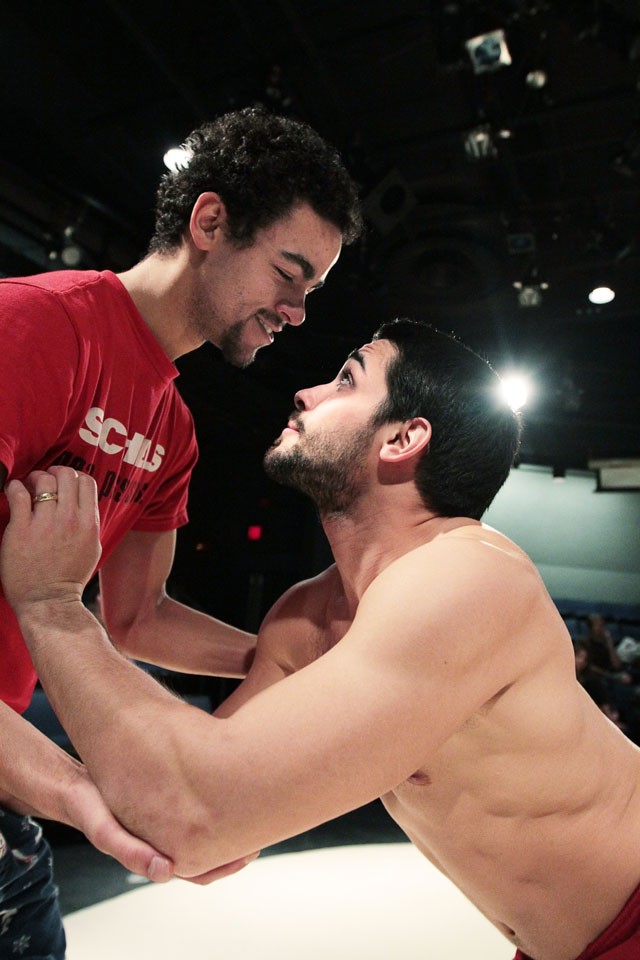With the recent uprisings in the Middle East, University of Minnesota anthropology professor William Beeman has been able to say a lot about the region he knows best.
“IâÄôve been doing a lot of commenting on the contemporary situation,” the Middle East specialist said, “and even though today we tend to think the Islamic world is behind the West, we wouldnâÄôt be where we are without its influence.”
BeemanâÄôs point resonates with the theme of “Shared Cultural Spaces,” a conference hosted by the UniversityâÄôs religious studies program that starts Thursday.
An interdepartmental group of faculty designed the conference to highlight the Islamic influence on Western arts, architecture, philosophy, literature and sciences, said key conference organizer Jeanne Kilde, the director of the religious studies program.
She said the event has drawn together faculty, students and community members from a range of backgrounds due to a focus on Islam across University disciplines.
“We have drawn faculty from all over [the College of Liberal Arts],” she said. “We are able to do that in this particular historical moment where national identity depends on this type of discussion.”
The conference will also feature the premiere of the play “Journey,” which will be performed each night at 8 p.m. at Rarig Center.
Kilde said the play was not part of the vision for the conference until an initial brainstorming meeting with University faculty presented an opportune coincidence.
At the meeting, Beeman mentioned the play, which is New York director Mohammad GhaffariâÄôs adaptation of the 12th Century medieval novel “Hayy ibn Yaqzan.” Kilde said this was a surprise to English professor Nabil Matar, who has done a significant amount of research on the novel.
Beeman, the producer of the play, said the coincidence presented a good entry point for the theme of the conference, which is illustrated in the novelâÄôs influence on Western literary classics like “Robinson Crusoe” and “The Jungle Book.”
“The literary influence of this work was very, very great for the West,” he said. “The play brings the theme of the conference to life in a very important way.”
Beeman said the performance, which follows a young boy raised without human contact on his quest for understanding, has a surprisingly contemporary look and feel despite its medieval origins.
“IâÄôm hoping people will be able to realize that here we have a work more than 1,000 years old,” he said, “and yet it is able to speak to a contemporary audience in very profound way.”
Preparations for the conference, which is expected to attract 150 to 200 attendees per session, began last April when the National Endowment for the Humanities called for proposals for an initiative focusing on Islam and the humanities, Kilde said.
After drafting a proposal, the group submitted its idea for the conference, which received a $170,000 grant from the National Endowment for the Humanities, Matar said.
He said the planning process incorporated focus on both the academic community, including the 17 scholars who will travel from around the nation to speak, and a public audience including community partners like the Minneapolis Institute of Arts, Hennepin County Libraries and a number of K-12 educators.
“The NEH parameters for the project called for something not just exclusive to the academy,” Kilde said. “We knew we had to include a community engagement piece.”
The group brought together about 30 community representatives for a workshop on Feb. 4. To fulfill grant requirements, Kilde said, they will reconvene after attending the workshop to develop national programming in line with the themes presented in the conference.
Students are also getting involved. Twenty-five of them have volunteered to act as ushers and support staff for the conference, Derk Renwick, the conference volunteer coordinator, said.
Matar said he hopes members of the public are able to sense the intersection of cultures, particularly in the face of negative representations of Islam in recent media coverage.
“These are not two civilizations set apart from each other,” he said. “Dialogue has been going on between them for centuries, and it has been very enriching for both civilizations.”
All conference sessions and performances are free for the public and will take place in various locations on campus. After its campus premiere, “Journey” will run at the ChildrenâÄôs Theatre Company March 3 through 13.


